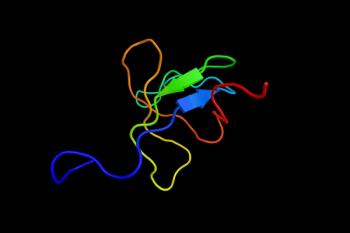
Clinical
Latest News

Latest Videos

CME Content
More News

Patients with nonalcoholic steatohepatitis (NASH) and obesity had a reduced risk of major adverse liver outcomes and major adverse cardiovascular (CV) events after they underwent bariatric surgery compared with patients who did not have surgery.

Using cell cultures from pediatric patients with neuroblastoma, researchers performed drug-response testing and investigated correlations between copy number and cytotoxicity of drug treatment.

Wanting more data on the benefits of sacubitril/valsartan vs renin angiotensin system inhibitor background therapy, investigators conducted a large randomized study among persons with heart failure with preserved ejection fraction (HFpEF).

Prior to chimeric antigen receptor (CAR) T-cell therapy for relapsed/refractory diffuse large B-cell lymphoma (DLBCL), patients experienced a decrease in health-related quality of life (HRQOL), which was further impaired during and immediately after CAR T therapy.

On this episode of Managed Care Cast, we speak with MeiLan K. Han, MD, MS, the author of a book released this month called Breathing Lessons: A Doctor’s Guide to Lung Health. Han, a pulmonologist, gives an inside tour of the lungs and how they work, zooms out to examine the drivers of poor respiratory health, and addresses policy changes that are needed to improve lung health.

Kathy Oubre, MS, closes this Insights program by evaluating her organization’s biosimilars program and formularies, including third party preference on the use of specific biosimilars and whether biosimilars can be used outside of their indications.

Two experts explain if they had to create any incentives for health care providers to prescribe biosimilars, whether they encountered challenges with their electronic health records, and if their biosimilar programs impacted their clinical pathway/care plans.

Posters presented at the American Academy of Ophthalmology 2021 annual meeting showed that even patients with mild inflammation with their thyroid eye disease benefitted from teprotumumab and that real-world adherence was consistent with the pivotal clinical trials.

Neck circumference may serve as a suitable alternative to waist circumference when gauging cardiometabolic risks, outside of body mass index and waist circumference, among women with polycystic ovary syndrome (PCOS).

Findings of a small study conducted in Brazil indicate exercise prescribed to patients with type 1 diabetes (T1D) may need to be tailored based on sex.

This new analysis shows early diagnosis of some lysosomal storage disorders can help avoid irreversible damage across the board.

Genetic profiling in recurrent and advanced breast cancer can yield actionable, smoking-gun biomarkers, Stanford Cancer Institute pathologists explained at the National Comprehensive Cancer Network 2021 Virtual Congress: Biomarkers in Solid Tumors.

An overview of the latest clinical news in Parkinson disease reported across MJH Life Sciences™.

A safety analysis of 6 trials found zanubrutinib has a toxicity profile consistent wth other Bruton tyrosine kinase (BTK) inhibitors.

According to the study authors, a growing number of findings from preclinical studies have suggested a focus on immunometabolism to modulate alloreactive donor T cell responses to control graft-versus-host disease (GVHD) and promote graft-versus-tumor effect.

The real-world visual acuity gains in age-related macular degeneration (AMD) after treatment have been inferior to those seen in clinical trials, explained a speaker during the American Academy of Ophthalmology 2021 meeting.


A discussion at the National Comprehensive Cancer Network 2021 Virtual Congress: Biomarkers in Solid Tumors addressed the advantages and considerations for broad and targeted genomic profiling in oncology.

Unlike other options in the past, teprotumumab actually addresses bulging eye and double vision associated with thyroid eye disease (TED), which patients primarily care about, explained Robert G. Fante, MD, FACS, president of the American Society of Ophthalmic Plastic & Reconstructive Surgery and facial plastic surgeon and cosmetic surgeon, Fante Eye & Face Centre in Denver, Colorado.

Analysis of the MarketScan database showed a strong association between flash continuous glucose monitoring (CGM) use and significant reductions in diabetes-related events and hospitalizations in a cohort of 10,282 adults with type 2 diabetes.

Researchers conducted the study because although prior research has illustrated that elevated levels of iron in the blood from hereditary hemochromatosis can raise the risk of liver cancer, little is known about the effect of this condition in nonalcoholic fatty liver disease (NAFLD).

Scholarly peer-reviewed articles reporting on factors associated with therapeutic inertia in caring for patients with hypertension were analyzed using scoping and bibliometric methods.

A recent review highlighted the importance of managing cardiovascular risk factors in patients with Fabry disease versus the general population.

Outcomes of in-hospital mortality, 7-day mortality, and emergency department length of stay were investigated among a cohort of patients with acute heart failure and hypercapnia, or excessive levels of CO2 in the blood.

The analysis showed biomarkers that persisted despite the presence or absence of type-2 inflammation.
















